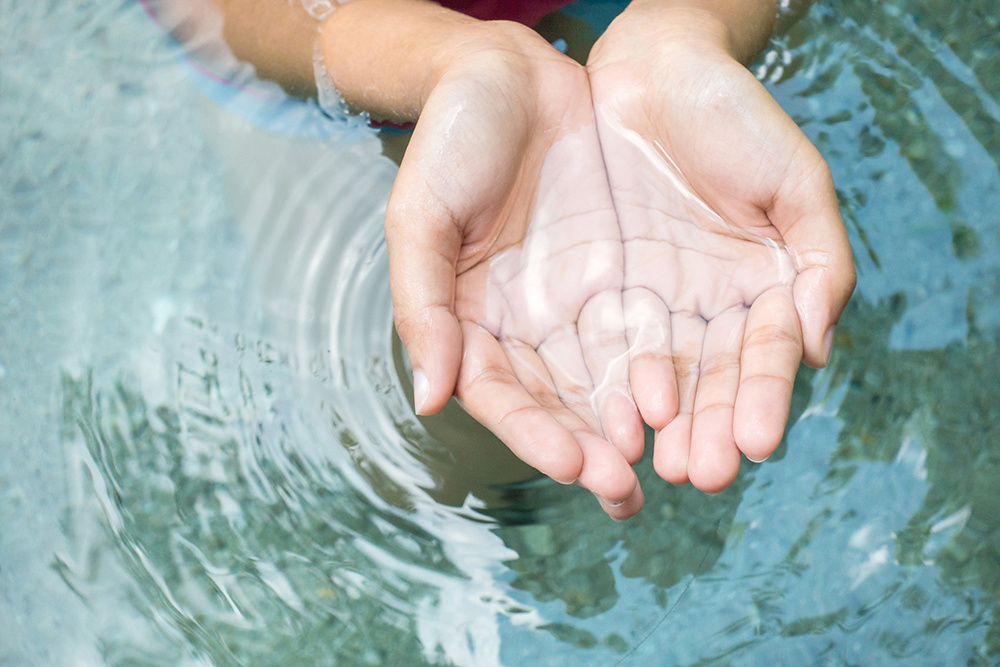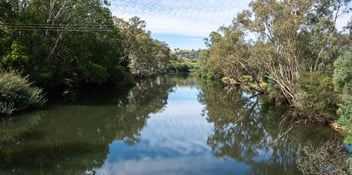Federal investment in water security, irrigation and environmental restoration

Last month, the 2024-25 Portfolio Budget Statements were released by the Department of Climate Change, Energy, the Environment and Water (DCCEEW) with investment earmarked for infrastructure for drinking water and irrigation, and delivery of the Murray-Darling Basin Plan.
The Budget is also allocating funding to establish Australia’s first national independent Environment Protection Agency, which is intended to bolster world-leading science on climate change and threatened species.
Federal Minister for Environment and Water, the Hon Tanya Plibersek MP, said ensuring water security for regional and remote communities, as well as irrigators and industry, is one of the key focuses of investment in the coming years.
“All Australians, no matter where they live, have the right to safe, reliable water. In Australia, more than 600,000 people living in regional and remote communities don’t have access to water that meets recognised standards,” she said.
“[W]e’re investing $140.4 million in construction projects, including for agriculture, town water supplies and water recycling. This includes $20.7 million for 10 new water infrastructure construction projects in regional and remote First Nations communities.
“To make sure future construction projects stack up economically and environmentally, we’re investing $34.3 million in 22 business cases and scientific research projects. This will help us to make more informed investment decisions, and better understand our water resources and the technologies we use to manage them.
“The Great Artesian Basin is the country’s largest groundwater system and it’s a lifeline for towns and farmers in central Australia during the dry times. Industries that rely on this precious water source contribute $33.2 billion per year to Australia’s economy.”
The Budget also includes $32 million to deliver on-ground water security projects, fix or replace hundreds of flowing or leaky bores, and install new pipes for up to 4560kms of open bore drains, securing about 104 gigalitres across the Basin.
Murray-Darling Basin
On 7 December 2023, the Water Amendment (Restoring Our Rivers) Act 2023 commenced, after the Water Amendment (Restoring Our Rivers) Bill 2023 was passed.
Reforms to the Water Act 2007 and Basin Plan 2012 were established to support the implementation of the Basin Plan in full, including the delivery of the 450 GL of additional environmental water, and to improve transparency and integrity of water markets in the Basin.
“Since passing the Restoring our Rivers legislation last year to deliver the Murray-Darling Basin Plan in full, we are now getting on with it,” Plibersek said.
“This Budget will see more options and more funding added to our water recovery toolbox. An additional $27 million has been committed to expand the Resilient Rivers Water Infrastructure Program to allow more water savings projects to be developed.”
The Budget included an extra $7.2 million for the Murray-Darling Basin Authority to deliver the Constraints Relaxation Implementation Roadmap by the end of this year, Plibersek said.
“We are helping Basin states to manage the flow of the rivers, including by building bridges, culverts, and other infrastructure, to minimise damage from low level flooding. Our investment will also help boost involvement of First Nations people in Basin water management,” she said.
Restoring trust in the Murray-Darling Basin system is another key focus within the Budget. With investment allocated to make sure the water market has strong rules against insider trading and requirements for proper record keeping.
“With an extra $28.6 million, the Inspector-General of Water Compliance will be better equipped to ensure people don’t take more water out of our rivers than they’re allowed to,” Plibersek said.
“That’s on top of $5.7 million to ensure the Australian Competition and Consumer Commission, as the incoming Basin water market conduct regulator, is resourced to carry out its new water market integrity functions.
“This includes enforcing compliance with insider trading and market manipulation rules.”
Nature Positive Australia
Environmental restoration requires urgent action across Australia, and Plibersek said the Budget includes significant investment in legal and institutional nature positive improvements.“This Budget provides urgent investment in Australia’s research capabilities to better protect our natural world,” Plibersek said.
“We’ve secured Australia’s position as a global scientific leader by investing $371.1 million over nine years from 2024-25 to rebuild and upgrade our research station on World Heritage listed Macquarie Island.
“Boosting our capacity to monitor climate and greenhouse gas emissions, and accurately forecast droughts and rainfall, means we will better protect nature and Australian livelihoods.”
The Budget allocations for nature positive improvements include:
- $121 million to establish Australia’s first national independent Environment Protection Agency with strong new powers and penalties to better protect nature;
- $51.5 million for more accountability and transparency with a new body called Environment Information Australia, which will give the public and businesses easier access to the latest environmental data, release State of the Environment reports every two years, and report on progress on national environmental goals; and
- $134.2 million to strengthen and streamline environmental approval decisions on priority projects, including renewables and critical minerals projects.
“Last year, the Albanese Government passed critical legislation to set up the world’s first nature repair market – driving business and philanthropic investment in nature repair and threatened species protection,” she said.
“The Budget locks in $35.6 million over two years from 2024-25 to continue developing the processes and systems needed to administer the scheme.
“This builds on the Government’s more than $500 million investment to better protect our threatened species, such as koalas, quolls and Australian sea lions, and crack down on feral animals and weeds.”
“Australians love our bush and our oceans and want to be able to protect them for their kids and grandkids. Last year we doubled funding to better look after national parks, including Kakadu and Uluṟu, after the Liberals let them fall apart. This Budget reinforces our extra funding.”
Plibersek said a key focus in this work is to reduce the environmental footprint, and make the most of Australia’s precious natural resources.
“That’s why we’re driving Australia’s transition to a circular economy – cutting down on plastics, reducing waste, and supporting households and industry to recycle or repurpose more materials,” she said.
“In this Budget, we’re investing $23 million in 2024-25 to develop a new national circular economy framework, continue to tackle problematic waste streams, such as packaging, and get on with the development of a much-needed new recycling scheme for solar panels.”
Learn more about the 2024-25 Portfolio Budget here.

